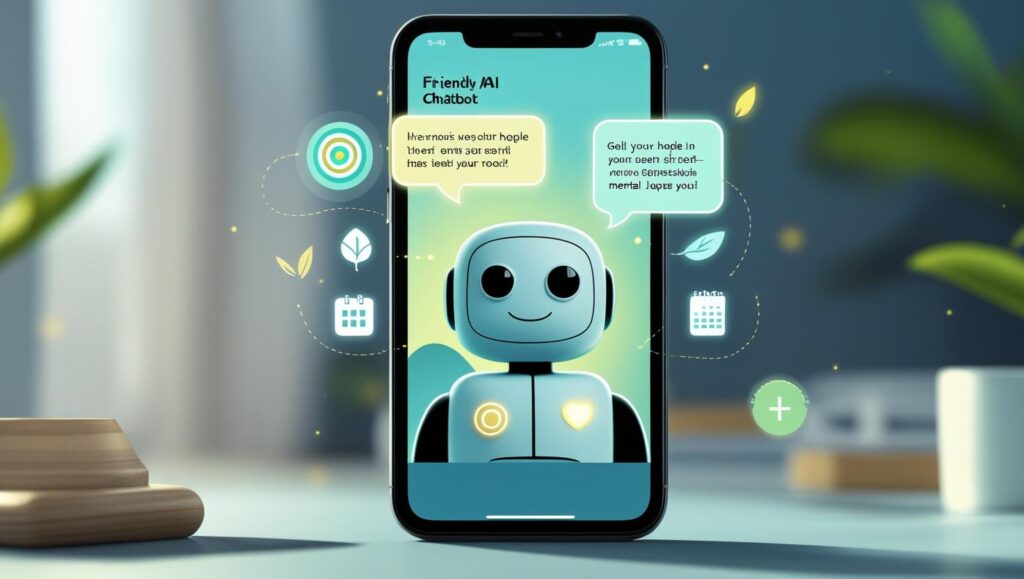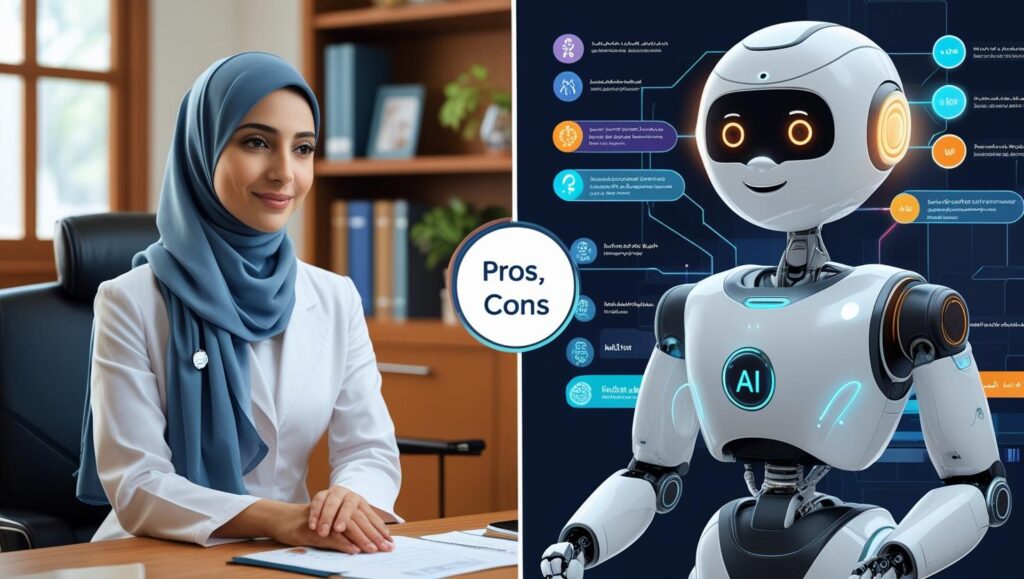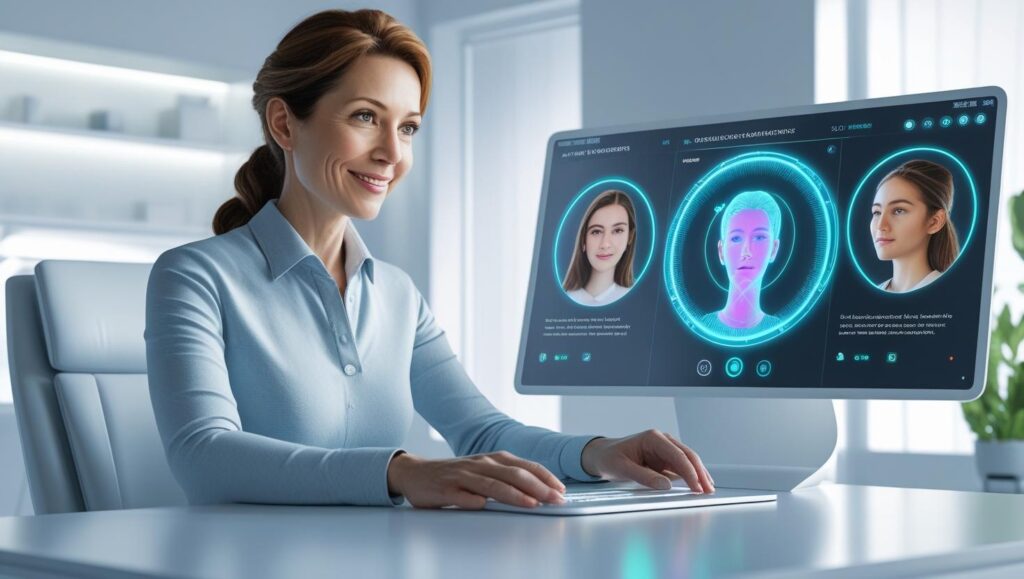Introduction: Welcome to the Era of AI Life Coaching
AI isn’t just helping us write emails or plan workouts anymore. In 2025, it’s stepping into one of the most personal areas of our lives—coaching and therapy. The rise of the AI life coach marks a new era in personal growth, self-improvement, and emotional support.
But can a machine really replace a human therapist? Will AI become the go-to life guide for millions? Or is this another tech trend that overpromises and underdelivers?
Let’s uncover the 7 powerful truths about this fast-evolving shift—and what it means for your mental health journey.
1. What Exactly Is an AI Life Coach?

An AI life coach is a digital tool powered by artificial intelligence that offers advice, feedback, reminders, goal tracking, and even emotional support. It combines natural language processing, machine learning, and often chatbot interfaces to simulate conversations and offer helpful coaching prompts.
Popular tools like:
- Replika, a chatbot that builds emotional connections
- Mindsera, an AI journal and thought partner
- CoachAI, focused on personal productivity and motivation
These platforms aim to help people build habits, manage emotions, and improve their lives—without needing a real human coach.
2. The Biggest Benefits: 24/7, Non-Judgmental, and Affordable
The most appealing part of AI coaching? Accessibility. Unlike traditional therapists or coaches who charge by the hour, AI life coaches are available 24/7, often at a fraction of the cost—or even free.
Key Benefits:
- Instant availability: No appointments needed
- No judgment: You can express yourself freely
- Scalable insights: Algorithms adapt to your mood and progress
- Habit tracking: AI remembers patterns better than most humans
AI also removes social barriers. Many people struggling with anxiety or low self-esteem find it easier to open up to a bot first.
In a world full of digital noise, tools like these can also support slow productivity methods by helping you focus on meaningful goals.
3. But Here’s What AI Still Can’t Do
Despite the hype, AI life coaches have real limitations. They don’t truly understand human emotions—they mimic understanding based on data patterns.
Current Limits:
- No real empathy: AI responds to keywords, not emotional depth
- No trauma training: Can’t safely handle complex psychological issues
- One-size-fits-all coaching: Personalization is still shallow
- Ethical gray zones: They don’t follow professional codes of ethics
If you’re facing grief, trauma, addiction, or deep-rooted mental health challenges, an AI tool can’t replace a qualified therapist.
While AI can simulate empathetic responses, it lacks genuine emotional understanding and the nuanced judgment essential for effective therapy, as highlighted by experts in the field.
4. Human vs. AI: Can Coaching Be Replaced?

Many experts agree: AI won’t replace therapists—but it will reshape the way we access support. Think of AI as a first layer, not the full solution.
Think of it like this:
- AI = Quick check-in + journaling + accountability
- Human = Deep emotional processing + diagnosis + healing
In fact, some coaches are already using AI-assisted tools to enhance sessions—an example of “augmented coaching”.
This mirrors how smart mirrors in daily routines don’t replace personal habits, but amplify them.
5. The Role of AI in Building Habits and Motivation
AI coaches can be surprisingly good at daily behavior reinforcement. Want to build a morning routine, meditate daily, or stay off social media? AI tools can nudge you gently—and consistently.
Some even offer:
- Personalized check-ins
- Voice-based journaling
- Visualizations and mood tracking
- Cognitive behavior prompts
Over time, these digital systems train you to form habits that stick.
6. Who Should Consider an AI Life Coach?
Not everyone needs therapy. Some people just need guidance, consistency, and feedback. For this group, an AI life coach might be the perfect entry point into self-development.
AI Coaching May Be Right If You:
- Want to improve focus or productivity
- Need help organizing thoughts or goals
- Struggle with consistency or motivation
- Prefer private, tech-based tools over people
However, it’s best not to rely on AI for crisis support or mental illness. Always seek professional help when needed.
7. The Future of Mental Wellness Is Hybrid

In the coming years, expect to see a hybrid model: therapists and coaches using AI to monitor progress, track moods, and even enhance therapy sessions.
Future Trends to Watch:
- AI-powered journaling + human reflection
- Personalized AI therapy apps trained on your own conversations
- Voice-based companions like Apple’s and Google’s emotional AI
- Virtual therapy rooms with emotion-tracking avatars
AI isn’t here to replace us—it’s here to support, structure, and remind us to care for ourselves better.
AI is poised to enhance mental health care by improving access and providing real-time data to support human therapists, addressing the global shortage of mental health professionals.
🧠 Final Thoughts: Use AI as a Tool, Not a Crutch
The question isn’t whether AI life coaches will replace human therapists—they won’t. The real question is: How can we use AI to better support our mental health and personal growth?
When used intentionally, AI life coaches can be a powerful companion for self-improvement. But when you’re hurting or need deep emotional healing, nothing replaces real human connection.
Let AI be your assistant—not your lifeline.
